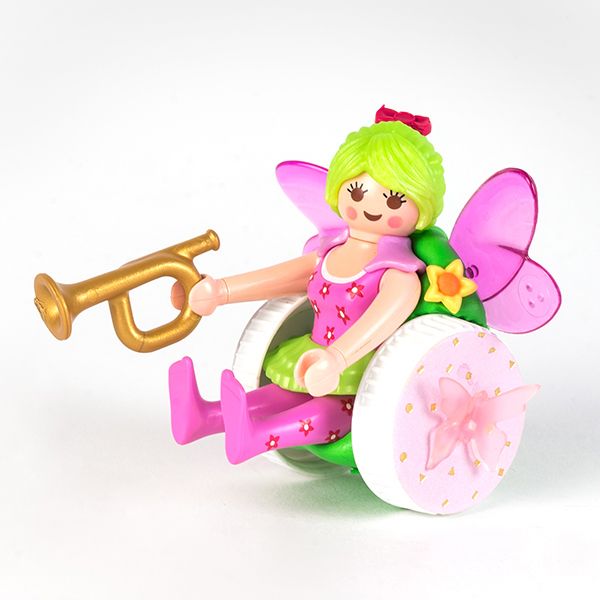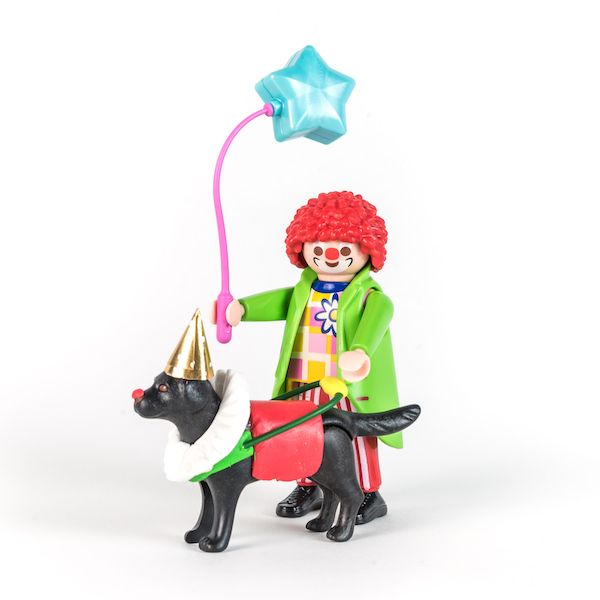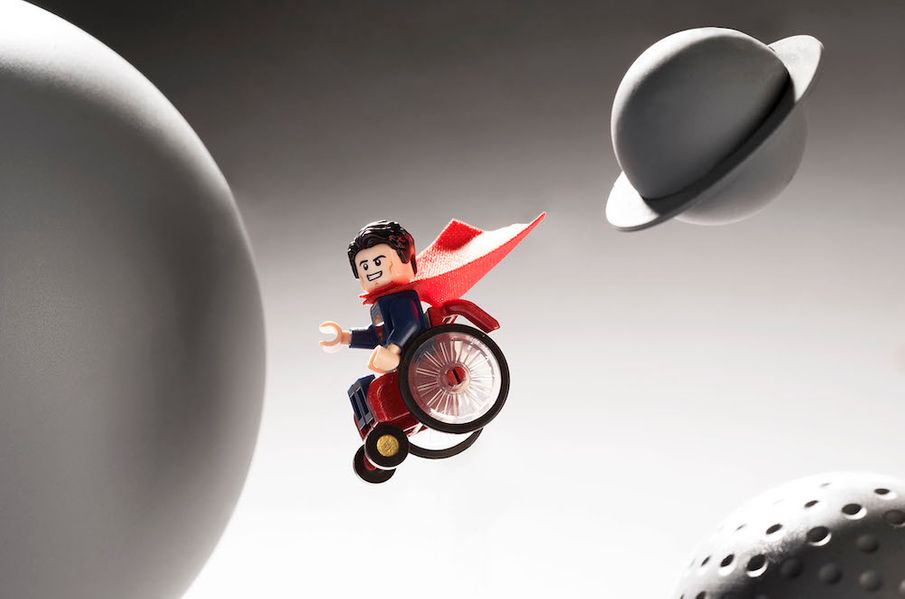Around 8% of children in the UK are disabled, and yet the toys they play with rarely reflect their experiences. Toy Like Me is the campaign calling on toy makers to improve the diversity of their products
Everyone deserves to feel seen. To be able to look around them, and know that they’re not an anomaly, or alone. Messages that tell us what is ‘normal’, and what is not, start very early on. They’re in the films that we watch, the role models we’re given, and the toys that we play with.
That is, until now. Diversity is possibly the biggest conversation of the past decade, and Toy Like Me is a rung in the ladder that’s taking us to a more inclusive world.
Founded in 2015 by journalist Rebecca Atkinson, Toy Like Me campaigns for better representation of disabilities and differences, by making-over famous children’s toys. Rebecca has been the mastermind of several viral campaigns, picking up celebrity supporters like Steven Merchant and author of The Gruffalo, Julia Donaldson, on the way.
So how did it all start, and what difference is the campaign making to the lives of disabled children?
In a Barbie world
A ‘one size fits all’ attitude can lead to a lot of internalised shame, which Rebecca has experienced first-hand. Wearing hearing aids since childhood, it took her a long time to feel comfortable with them.

Toy Like Me
“I never wore my hair up until I was in my 20s because I didn’t want people to know my secret,” Rebecca tells us. “I never saw anyone with hearing aids in magazines or books, or on TV, so it felt like something that should be hidden. If you never see positive images of people like you, you can internalise a sense of shame about who you are.”
When Rebecca founded Toy Like Me, she wasn’t asking brands to make toys specifically for disabled children, but disabled toys for all children. Her vision is for disability to become part of a standard experience – breaking down stereotypes about what disability looks like, and shining a light on something that, when excluded from our experiences, so often becomes a source of shame.
G.I. grow
So, Rebecca began giving famous toys disabilities, taking photos of them and sharing them online. The photos went viral and the story was picked up by news outlets around the world.
But more importantly, Rebecca built up a community of people who shared the same vision. Recognising this, she started a petition asking Playmobil to make official versions of the toys she had adapted.
“Playmobil, we’ve made these toys to give you some ideas! We would love to see you make them for real,” Rebecca wrote on the change.org petition. “You’d make a lot of people happy. You’d make a lot of kids feel included. And most importantly, you’d make a lot of guide dog tails wag!”
We’re taking one giant leap towards a kinder, more inclusive world for all
And, the petition worked. More than 50,000 people signed it, leading Playmobil to begin work on new products inspired by Toy Like Me, taking on Rebecca as creative consultant.
“The Toy Like Me campaign has been inspiring for us – we’ve listened to our audience and are delighted to offer our full support,” read a statement from Playmobil. “We receive a lot of positive comments from guardians of deaf and disabled children, on how well our toys stimulate their learning and creativity, so we are thrilled to be able to champion their representation in the toy box.”
But this overwhelming support for her campaign came as no surprise to Rebecca. “I know how powerful it is to see yourself represented,” she explains. “And when that never usually happens, it invokes a strong ping of recognition. A ‘that’s like me!’ moment which is really powerful and validating for kids, and adults too.
“I think I was more surprised that no one had thought of something so simple before.”
Lego of ‘normal’
“We initially had a lot of success on social media with our images being seen by millions of people all over the world, but most of these were adults,” Rebecca explains. “We wanted to reach the children themselves, so we evolved as an organisation to host school workshops and public events to engage children in learning about disability through the magic of toys and play.”

Toy Like Me
The Toy Like Me workshops aim to teach children in primary schools about diversity and inclusion. “For disabled children themselves, seeing toys which represent diversity can be very validating, and for non-disabled children, research has shown that exposure to disability through toys can help grow open minds,” Rebecca says.
She doesn’t just believe that representation works, it’s something she knows and that she sees in the children Toy Like Me reaches.
“One child who was about to get her first wheelchair, and was very anxious about it, totally changed her attitude – to one of excitement – after engaging with our image of a Lego superhero using a wheelchair,” Rebecca says. “These little visual messages can be very powerful. We’ve also heard of lots of children taking a Toy Like Me to school for show and tell, and using it to start a conversation with the class.”
To infinity, and beyond
But all this is just the beginning. This year, Toy Like Me received a grant from the Paul Hamlyn Foundation to create 3D printed wheelchairs for toys, which will be available later this year, alongside a white cane, hearing aids, and cochlear implants.
Nothing beats the joy of a child who feels seen, and that’s exactly what Toy Like Me is doing for the thousands of children in the UK who, for so long, have not been able to recognise themselves in the toys they play with.
It’s evidence of the power that we all have to evoke change, to join in calls for progress, and to get things done for future generations. Because when we all pull together to celebrate the things that make us, and others, different, we’re taking one giant leap towards a kinder, more inclusive world for all.


Comments